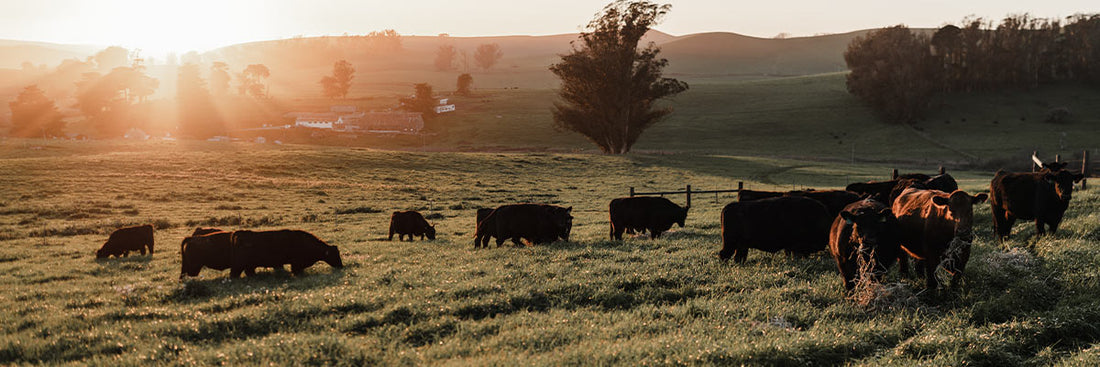Regeneratively Raised Meat vs. Organic. What's the difference?
Mike Hondorp
In recent years, the conversation around sustainable agriculture has gained significant traction, with consumers becoming more conscious of the environmental and ethical implications of their food choices. Two terms that frequently pop up in this discussion are "organic" and "regenerative." While both methods aim to mitigate the negative impacts of conventional farming, they differ significantly in their approaches and outcomes, especially when it comes to meat production.
Organic farming, as many of us know, involves exclusion of synthetic pesticides and fertilizers, which can benefit land and animal health. It's a step in the right direction, offering consumers a cleaner, more natural option compared to conventionally produced goods. However, regenerative agriculture takes this a step further, offering a holistic approach that not only sustains but actively regenerates the ecosystems it operates within.
So, what sets regeneratively raised meat apart from its organic counterpart?
1. Carbon Sequestration:
Regenerative agriculture focuses on building healthy, carbon-rich soil through practices like rotational grazing, cover cropping, and minimal soil disturbance. By doing so, it not only reduces carbon emissions but actively sequesters carbon from the atmosphere, mitigating climate change in the process. Organic farming may also improve soil health but doesn't necessarily prioritize carbon sequestration to the same extent.
2. Biodiversity Enhancement:
Regenerative practices prioritize biodiversity by mimicking natural ecosystems. Rotational grazing, for instance, allows grasslands to recover, providing habitat for diverse plant and animal species. This contrasts with some organic operations that may still rely on monoculture practices, albeit without synthetic inputs.
3. Water Conservation:
Regenerative agriculture often incorporates water-saving techniques such as holistic planned grazing, which improves water infiltration and retention in the soil. This can lead to reduced irrigation needs compared to conventional and even organic farming methods, ultimately preserving water resources.
4. Animal Welfare:
While both regenerative and organic systems typically offer better conditions for livestock compared to conventional operations, regenerative practices often prioritize the holistic management of animals within the ecosystem. This means allowing them to express natural behaviors like grazing and foraging, contributing to their overall welfare and health.
5. Nutritional Quality:
There's growing evidence to suggest that meat from regeneratively raised animals may be more nutrient-dense compared to conventionally or even organically raised counterparts. This is likely due to the healthier, more diverse diets these animals enjoy, coupled with the improved soil health that enhances the nutrient content of the plants they consume.
6. Economic Resilience:
Regenerative agriculture often offers economic benefits to farmers by reducing input costs over time, improving soil fertility, and resilience to extreme weather events. By fostering self-sufficiency and reducing reliance on external inputs, regenerative systems can help farmers build more resilient and profitable operations.

In essence, while organic farming represents a crucial step towards sustainable agriculture, regenerative practices take it a step further by actively restoring and revitalizing ecosystems. By prioritizing soil health, biodiversity, and holistic management, regeneratively raised meat offers a more comprehensive solution to the environmental, animal welfare, and human health challenges associated with industrialized agriculture.
As consumers, our choices matter. By supporting regenerative agriculture and opting for regeneratively raised meat — like Force of Nature meats — we not only nourish our bodies but also contribute to the healing and regeneration of our planet's ecosystems. It's a powerful way to align our values with our actions and pave the way towards a more sustainable and resilient future for generations to come.